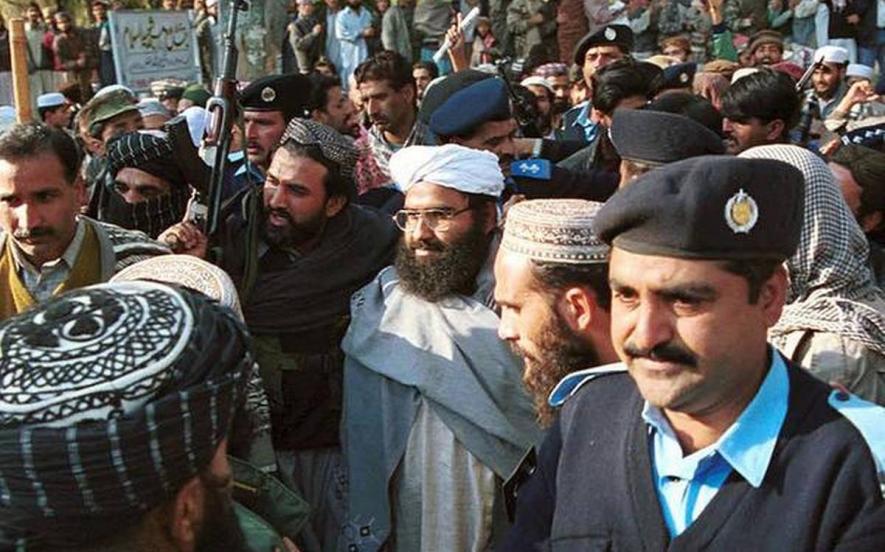National Security: The New in ‘New Normal’

The much talked about “new normal” in India-Pakistan relations, where strategic restraint was given up for retaliation, as reflected by the February 26 Balakot raid, turned the very next day into military stalemate, albeit higher on the escalatory ladder. Although the conventional wisdom in India was that Pakistan’s threat to use nuclear weapons kept India away from retaliating to terrorist attacks by Pakistan-based groups. As a matter of fact, it was not the fear of Pakistan’s nuclear response that prevented India from doing anything more than undertake covert acts inside Pakistan.
It was a considered and calculated decision to not give up strategic restraint. Manmohan Singh as Prime Minister had, for once, was bang on target when he stated on the floor of Parliament that war was not an option with Pakistan. He was lambasted for this and accused of being a lame duck leader, but as a matter of fact, his was the voice of enlightened self-interest. A war between the two nuclear armed countries can and will go terribly wrong for both sides and India stands to lose its strategic autonomy and independent foreign policy because war would bring in third party mediation and internationalisation of Indo-Pakistan relations.
We know now that Indian Navy had moved 60 of its warships, including aircraft carrier and nuclear submarines, and 60 naval fighter jets, engaged then in a naval exercise “Tropex 19”, to the North Arabian Sea off Pakistan’s coast. This muscle-flexing came to a nought because within two days of Balakot, the tension frittered away. India refused to retaliate against, what its own military commanders told the Indian public, that Pakistan had committed an ‘act of war’.
India has known since February 2002 that Pakistan had outlined four actions by India which can trigger use of nuclear weapons by Pakistan. These are (1) conquest of a large part of Pakistan territory, including Azad Kashmir; (2) destruction of a large part of Pakistani armed forces; (3) pushing Pakistan into political destabilisation; and (4) if Pakistan’s economy gets strangled.
In other words, if India had chosen to retaliate and go public, then it would not result in any nuclear response by Pakistan. And Pakistan displayed on February 27 that it had multiple conventional responses to any Indian retaliation. The reason for abstaining from it publicly in the past and carry on retaliation covertly was chosen because it allowed more room for diplomacy and also ensured that everything was kept low key so as to not allow for anything getting out of control. From this stemmed the confidence of both Indian and Pakistani leadership that they understand each other’s deterrence signals and can de-escalate at will on their own. And, therefore, also allowed outside powers little occasion to play the mediator role and acquire a position detrimental to India’s strategic autonomy and independent foreign policy.
It is against this background that the elevation of Masood Azhar as the single most important concern for India has to be seen. Having achieved nothing worthwhile from Balakot, the focus is once again on listing Azhar as “global terrorist”. Paradoxically, in raising Azhar to the pinnacle of India’s diplomatic push, the pseudo-nationalist BJP government cannot hide its own role in the making of Azhar.
Azhar was arrested by the Indian Army in 1994 and had been in Indian custody since then. He was freed by the Bharatiya Janata Party-led government in 1999 after all charges were dropped against him, in return for the160-odd passengers held hostage in the IC814 hijacking. Azhar, along with two others, were freed and he went on to form the Jaish-e-Mohammad (JeM) and they carried out in Kashmir several fidayeen attacks from 2000 to 2003 and was also involved in the December 13 Parliament attack case.
As a consequence of the ceasefire reached between India and Pakistan with the help of the US administration, JeM more or less disappeared from Jammu and Kashmir. They re-emerged again in 2015 after the Narendra Modi government began its all-out military suppression in Kashmir. In other words, Azhar was released by a BJP government. His organisation, which ceased to be active after 2003, revived itself under another BJP government, this time led by Modi. And India is staking its prestige on wanting him listed as a “global terrorist”. Is this diplomatic foray a mark of strength or does it actually exhibit India’s weakness? Because, in going after one person, the focus has shifted from the more troublesome aspect of the Pulwama suicide bomber.
Also read: Modi’s War Rhetoric May Boomerang on India
Indians ought to be worried about JeM’s attempt to infuse suicide bombing in J&K in the current phase of heightened military suppression, where crackdown on social organisations compounds ruthless cordon and search and increased operations. In this Azhar is least of India’s immediate concern.
What the National Investigation Agency (NIA) has revealed so far about the Pulwama suicide bombing in which 45 CRPF jawans lost their lives, shows involvement of mostly locals, with two Pakistani – one Kamran who has reportedly been killed while another Ismail or Lambu, six feet five inches, who apparently is the fabricator of the Pulwama bomb case. The NIA claims 25-30 kg RDX was used and this came from Pakistan, but with no evidence to back this. The car was locally procured. Adil Dar, the suicide bomber, was a local youth. Two local youths recently killed were described by the Army commander as potential suicide bombers.
How many more such suicide bombers can there be? Even more disturbing, how many more will be attracted to this course driven by desperation, because there is no end to military suppression. Thirty years have passed without any resolution. What is happening now brings back memories of the 1990s when maximum atrocities occurred with arrests, torture, massacres, rapes, cordon and search, catch and kill, incentivised killings by offering cash reward and promotion etc which were then rampant. A time when the armed forces carried out their operations without restraint. At this moment, while Indians get pre-occupied with general elections, Kashmir stands apart and Kashmiris continue to suffer. Direct central rule in contemporary India means rule by the Prime Minister’s Office – one where the armed forces and administration are devoted to carry on with failed policy of trying to “transform the will and attitude of the people”, through intensifying coercion.
In other words, the Modi Sarkar may tom-tom its achievement vis-a-vis Pakistan and for carrying on with military suppression of Kashmiris which can reap them votes from jingoists and bigots. But the real issue is whether the armed forces, who failed to erase the idea of “Azaadi” after three decades of “Disturbed” area, Armed Forces Special Powers Act or AFSPA and military operations can do so in a situation where people remain defiant unmindful of the heavy odds they actually face. In other words, if the call of “Azaadi” still resonates across Kashmir, what is it that armed forces hope to achieve?
Also read: US, China and root cause of terrorism in South Asia
Get the latest reports & analysis with people's perspective on Protests, movements & deep analytical videos, discussions of the current affairs in your Telegram app. Subscribe to NewsClick's Telegram channel & get Real-Time updates on stories, as they get published on our website.
























